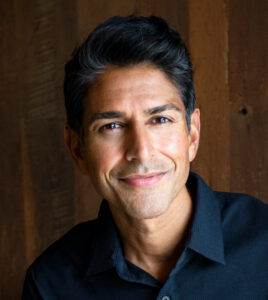Who is a member?
Our members are the local governments of Massachusetts and their elected and appointed leadership.

Suneel Gupta
Author and entrepreneur Suneel Gupta, who has studied the successes and failures of leaders and shares lessons from his own winding career, will explore the link between well-being and performance as Connect 351’s opening keynote speaker on Jan. 24 in Boston.
As the founding CEO of a mobile health company, a visiting scholar at Harvard Medical School, and a bestselling author, Gupta has identified more sustainable habits to address the “energy crisis” at work, which he says drains momentum and causes burnout. In this world of “hustle culture,” he says, people fixate on their race against the clock, and it’s hurting both their well-being and their performance.
“We all feel strangled by time, but we don’t know how to manage our energy,” Gupta said in a February interview with Family Action Network.
While many people struggle with the time trap, he has found a common denominator among leaders who have achieved great success in their fields.
“It’s not because they’re exceptional about time management,” he said. “It’s because they’re exceptional at energy management.”
At the MMA’s annual conference, Gupta will discuss ways to improve energy management and extend the “emotional runway” for municipal leaders who face constant demands and public scrutiny. Combining ancient wisdom and scientific research, Gupta works to help leaders develop better energy management strategies in order to boost creativity, innovation, and productivity, while simultaneously improving their emotional resilience and well-being.
“If you look up ‘energy’ in the dictionary, the definition is going to be something along the lines of your capacity to do work,” he said in the Family Action Network interview. “But I would change that a little bit, to say that it’s really your capacity to engage with the world around you, and that’s with work, that’s with relationships, that’s with anything.”
Gupta has endeavored to learn from both the victories and setbacks in his own life. A Michigan native of Indian descent, Gupta encountered racism and bullying while growing up, but excelled academically, earning a degree in information systems from the University of Michigan-Dearborn, and law and business degrees from Northwestern University.
Following the collapse of his first two Silicon Valley startups more than a decade ago, Gupta became the “face of failure” when a New York Times article captured his comments at a conference on failure. But he soon achieved success as the founding CEO of the mobile health company RISE, which partnered with then-First Lady Michelle Obama to provide low-cost health coaching to people in need. He has also invested in numerous well-known companies, including Airbnb, 23andMe and the meditation app Calm.
Gupta now shares what he has learned with others. In addition to his involvement with Harvard Medical School, he is the host of the docuseries “Business Class,” which highlights the success stories and challenges of entrepreneurs, including Martha Stewart and Top Chef’s Tom Colicchio. He has written two books, “Backable: The Surprising Truth Behind What Makes People Take a Chance on You,” and “Everyday Dharma: 8 Essential Practices for Finding Success and Joy in What You Do.”
In his second book, published in 2023, Gupta explores the concept of “dharma,” which he calls the combination of a person’s essence and expression — who they are, and how they show up in the world. He says life’s nonstop demands often pull people further away from their essence, which leads to dissatisfaction and burnout. Taking lessons from Gandhi, the writer Toni Morrison, baseball legend Hank Aaron and others, Gupta’s book offers strategies for people to rediscover their essence and find joy in what they do.
“When you are expressing your essence, even in a small way, you begin to feel more confident, you feel more creative, you feel more like yourself,” Gupta said in the February interview.
After selling RISE (later acquired by Amazon) in 2016, Gupta had expected to bask in the success, but he found the glow lasted only a couple of weeks. That emptiness caused him to explore dharma, a concept his grandfather had taught him during a childhood visit to India. He says people can embrace both ambition and inner peace, if they do it in the right order.
“I think that the balance here of dharma is in not choosing one or the other,” he said. “Outer success can be important, and inner success can be important. The fallacy though, is that outer success is going to lead us to inner success.”